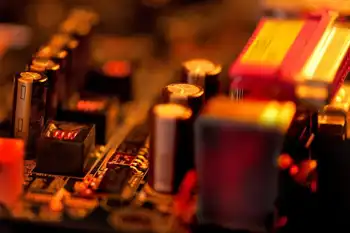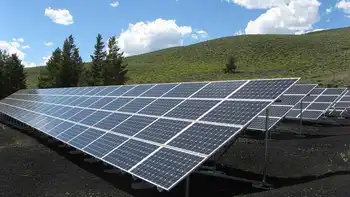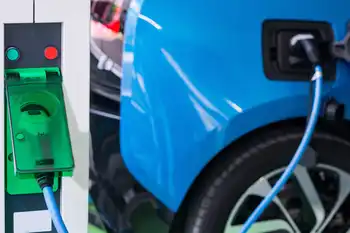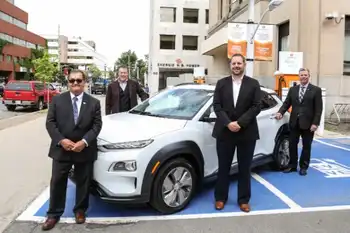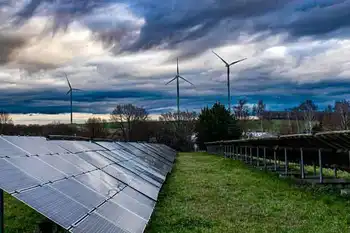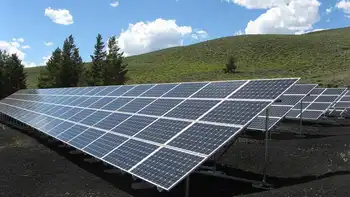Canada 2023 Clean Energy Outlook highlights decarbonization, renewables, a net-zero grid by 2035, hydrogen, energy storage, EV mandates, carbon pricing, and critical minerals, aligning with IRA incentives and provincial policies to accelerate the transition.
Key Points
A concise overview of Canada's 2023 path to net-zero: renewables, clean grids, storage, EVs, and hydrogen.
✅ Net-zero electricity regulations target 2035
✅ Alberta leads PPAs and renewables via deregulated markets
✅ Tax credits boost storage, hydrogen, EVs, and critical minerals
The year 2022 may go down as the most successful one yet for climate action. It was marked by monumental shifts in energy policy from governments, two COP meetings and heightened awareness of the private sector's duty to act.
In the U.S., the Inflation Reduction Act (IRA) was the largest federal legislation to tackle climate change, injecting $369 billion of tax credits and incentives for clean energy, Biden's EV agenda and carbon capture, energy storage, energy efficiency and research.
The European Union accelerated its green policies to transition away from fossil fuels and overhauled its carbon market. China and India made strides on clean energy and strengthened climate policies. The International Energy Agency made its largest revision yet as renewables continued to proliferate.
The U.S. ratified the Kigali Amendment, one of the strongest global climate policies to date.
Canada was no different. The 2022 Fall Economic Statement was announced to respond to the IRA, offering an investment tax credit for renewables, clean technology and green hydrogen alongside the Canada Growth Fund. The federal government also proposed a 2035 deadline for clean electrical grids and a federal zero-emissions vehicle (ZEV) sales mandate for light-duty vehicles.
With the momentum set, more action is promised in 2023: Canadian governments are expected to unveil firmer details for the decarbonization of electricity grids to meet 2035 deadlines; Alberta is poised to be an unlikely leader in clean energy.
Greater attention will be put on energy storage and critical minerals. Even an expected economic downturn is unlikely to stop the ball that is rolling.
Shane Doig, the head of energy and natural resources at KPMG in Canada, said events in 2022 demonstrated the complexity of the energy transformation and opened “a more balanced conversation around how Canada can transition to a lower carbon footprint, whilst balancing the need for affordable, readily available electricity.”
Expect further developments on clean electricity
2023 shapes up as a crucial year for Canada’s clean electricity grid.
The federal government announced it will pursue a net-zero electricity grid by 2035 under the Clean Electricity Regulations (CER) framework.
It requires mass renewable and clean energy adoption, phasing out fossil fuel electricity generation, rapid electrification and upgrading transmission and storage while accommodating growth in electricity demand.
The first regulations for consultation are expected early in 2023. The plans will lay out pollution regulations and costs for generating assets to accelerate clean energy adoption, according to Evan Pivnick, the clean energy program manager of Clean Energy Canada.
The Independent Energy System Operator of Ontario (IESO) recently published a three-part report suggesting a net-zero conversion for Ontario could cost $400 billion over 25 years, even as the province weighs an electricity market reshuffle to keep up with increasing electricity demand.
Power Utility released research by The Atmospheric Fund that suggests Ontario could reach a net-zero grid by 2035 across various scenarios, despite ongoing debates about Ontario's hydro plan and rate design.
Dale Beguin, executive vice president at the Canadian Climate Institute, said in 2023 he hopes to see more provincial regulators and governments send “strong signals to the utilities” that a pathway to net-zero is realistic.
He recounted increasing talk from investors in facilities such as automotive plants and steel mills who want clean electricity guarantees before making investments. “Clean energy is a comparative advantage,” he said, which puts the imperative on organizations like the IESO to lay out plans for bigger, cleaner and flexible grids.
Beguin and Pivnick said they are watching British Columbia closely because of a government mandate letter setting a climate-aligned energy framework and a new mandate for the British Columbia Utilities Commission. Pivnick said there may be lessons to be drawn for other jurisdictions.
Alberta’s unlikely rise as a clean energy leader
Though Alberta sits at the heart of Canada’s oil and gas industry and at the core of political resistance to climate policy, it has emerged as a front runner in renewables adoption.
Billion of dollars for wind and solar projects have flowed into Alberta, as the province charts a path to clean electricity with large-scale projects.
Pivnick said an “underappreciated story” is how Alberta leaned into renewables through its “unique market.” Alberta leads in renewables and power purchase agreements because of its deregulated electricity market.
Unlike most provinces, Alberta enables companies to go directly to solar and wind developers to strike deals, a model reinforced under Kenney's electricity policies in recent years, rather than through utilities. It incentivizes private investment, lowers costs and helps meet increasing demand, which Nagwan Al-Guneid, the director of the Business Renewables Centre - Canada at the Pembina Institute, said is “is the No. 1 reason we see this boom in renewables in Alberta.”
Beguin noted Alberta’s innovative ‘reverse auctions,’ where the province sets a competitive bidding process to provide electricity. It ended up making electricity “way cheaper” due to the economic competitiveness of renewables, while Alberta profited and added clean energy to its grid.
In 2019, the Business Renewables Centre-Canada established a target of 2 GW of renewable energy deals by 2025. The target was exceeded in 2022, which led to a revised goal for 10 GW of renewables by 2030.
Al-Guneid wants to see other jurisdictions help more companies buy renewables. She does not universally prescribe deregulation, however, as other mechanisms such as sleeving exist.
Alberta will update its industrial carbon pricing in 2023, requiring large emitters to pay $65 per tonne of carbon dioxide. The fee climbs $15 per tonne each year until it reaches $175 per tonne in 2030. Al-Guneid said as the tax increases, demand for renewable energy certificates will also increase in Alberta.
Pivnick noted Alberta will have an election in 2023, which could have ramifications for energy policy.
Batteries and EV leadership
Manufacturing clean energy equipment, batteries and storage requires enormous quantities of minerals. With the 2022 Fall Economic Statement and the Critical Minerals Strategy, Canada is taking important steps to lead on this front.
Pivnick pointed to battery supply chain investments in Ontario and Quebec as part of Canada’s shift from “a fuel-based (economy) to a materials-based economy” to provide materials necessary for wind turbines and solar panels. The Strategy showed an understanding Canada has a major role to meet its allies’ needs for critical minerals, whether it’s the resources or supply chains.
There is also an opportunity for Canada to forge ahead on energy storage. The Fall Economic Statement proposes a 30 per cent tax credit for investments into energy storage. Pivnick suggested Canada invest further into research and development to explore innovations like green hydrogen and pump storage.
Doig believes Canada is “well poised” for batteries, both in terms of the technology and sustainable mining of minerals like cobalt, lithium and copper. He is bullish for Canada’s electrification based on its clean energy use and increased spending on renewables and energy storage.
He said the federal ZEV mandate will drive increased demand for the power, utilities, and oil and gas industries to respond.
The majority of gas stations, which are owned by the nation’s energy industry, will need to be converted into EV charging stations.
Offsetting a recession
One challenge will be a poor economic forecast in the near term. A short "technical recession" is expected in 2023.
Inflation remains stubbornly high, which has forced the Bank of Canada to hike interest rates. The conditions will not leave any industry unscathed, but Doig said Canada's decarbonization is unlikely to be halted.
“Whilst a recession would slow things down, the concern around energy security definitely helps offset that concern,” he said.
Amid rising trade frictions and tariff threats, energy security is top of mind for governments and private organizations, accelerating the shift to renewables.
Doig said there is a general feeling a recession would be short-lived, meaning it would be unlikely to impact long-term projects in hydrogen, liquified natural gas, carbon capture and wind and solar.
Related News
